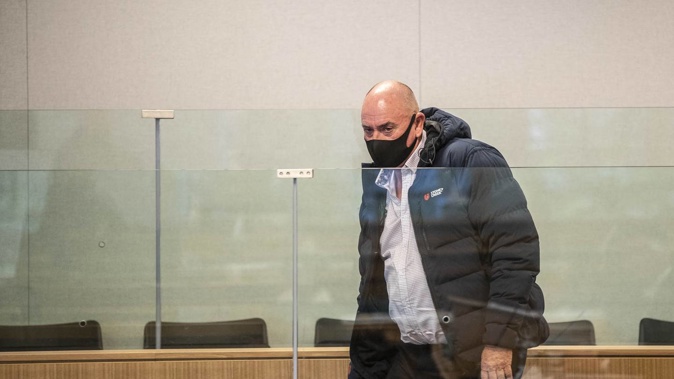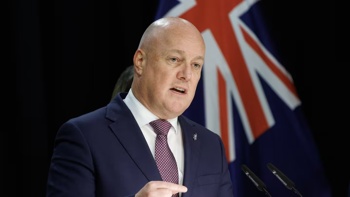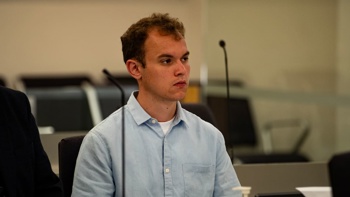
A fraudster who has been fighting to keep his name secret for the past six years can today be unmasked after he was jailed for siphoning hundreds of thousands of dollars from an Auckland rest home.
Duncan John Napier was found guilty last year of 45 fraud charges after systematically stealing at least $600,000 from Torbay Rest Home over seven years.
A judge jailed him for four years and 10 months, saying Napier had destroyed financial records to conceal the extent of his crimes, making it impossible to calculate how much he stole.
Napier can finally be named today over the fraud after the Supreme Court rejected an application by his latest employer - a land development company - to permanently suppress his name to protect the company’s reputation.
The company’s name, however, remains suppressed, after it claimed it would suffer adverse publicity if linked to Napier’s convictions.
Justice Timothy Brewer had earlier ruled Napier’s name should be revealed for the sake of open justice and to protect the public from him in any future business dealings.
Brewer said the company knew the man could face police charges when it hired him but “took the risk”.
/cloudfront-ap-southeast-2.images.arcpublishing.com/nzme/5LIWHDHPG3GPAJICJKJ2W6APYE.jpg)
Justice Timothy Brewer declined to grant Duncan Napier suppression saying the public had a right to know about the offender's extensive dishonesty. Photo / NZME
Napier was a successful real estate agent working for Bayleys when two civil court decisions in 2015 and 2016 found he had earlier “misappropriated” more than $1 million during his time at the rest home.
The industry watchdog declined to renew his real estate licence in 2016, saying he lacked the requisite honesty and integrity to practice real estate before he successfully appealed the decision.
He argued there was no “proven dishonesty”, but lost suppression at the real estate tribunal, quit the profession, and was subsequently charged by police.
Napier defrauded the rest home while employed as administration manager from 2005 to 2012. He was responsible for paying expenses and preparing financial records.
His High Court trial heard he diverted huge sums of money towards personal expenses such as school fees, Sky TV subscriptions and gym memberships, and to pay contractors working on his and his wife’s dream lifestyle home in Warkworth.
The Herald has been following Napier’s case for six years but this is the first time he can be named.
Torbay Rest Home director and former friend Mike Single said Napier’s story could finally be told after an 11-year fight for justice.
He described Napier as a “liar and a thief without conscience”.
/cloudfront-ap-southeast-2.images.arcpublishing.com/nzme/NFYT64WDK5C5PIGRFQHT72Y5MQ.jpg)
Duncan Napier was a successful real estate agent working for Bayleys when two civil court decisions in 2015 and 2016 found he had earlier “misappropriated” more than $1 million during his time at the rest home. Photo / supplied
“The process to achieve justice has been challenging, expensive and emotionally demanding. We have had to fight to throw light on the conduct in the face of a system that provided protection in numerous suppression orders being granted.
“We believe there is a real need to review suppression laws and a change to the attitude to fraud and combating it.”
Single said police were not resourced for the complexities of fraud cases.
Napier’s ongoing suppression had exposed the public, real estate industry, finance sector and legal fraternity “to a person that is completely dishonest”, Single claimed.
“We believe the professional authorities have failed to protect the public and the consequences are as yet not fully understood.
“Justice has been served but the bigger question is why is it so hard and challenging and why is there so much protection for the perpetrator?”
During an earlier Herald interview, Napier denied any wrongdoing.
“We didn’t do it. It was an interpretation of a very poor management structure, which the court referred to and the judge found on a no-guilt basis that there was money owed.”
He denied public safety had been compromised through his role as a real estate agent and said there’d been no complaints about his professional work as an agent.
“I don’t deal with money ... so I don’t believe anybody was put at risk.”
At the time, Bayleys said Napier’s professional conduct had been carefully monitored- including random audits and access to his deleted emails - and he’d performed his commitments to a “high professional standard”.
The Herald has sought comment from Bayleys after today’s suppression decision.
After being convicted last year, Napier abandoned his suppression bid ahead of his October sentencing, but the land development company lodged an application for leave to appeal to the Supreme Court.
The just-released decision said the company employed Napier from 2017.
“At the time he was employed, Mr Napier informed the applicants that he had been the subject of civil proceedings by the victim of the frauds and also alerted them to the possibility that he may be charged with criminal offending in relation to the frauds.
“Mr Napier became an important staff member for the applicants and dealt with third parties on their behalf.”
The company argued it gave Napier a “second chance” by employing him despite his background and “they should not suffer harm from having done so”.
However, the Supreme Court declined to grant leave, saying there was no miscarriage of justice based on the arguments presented to the court.
Take your Radio, Podcasts and Music with you









